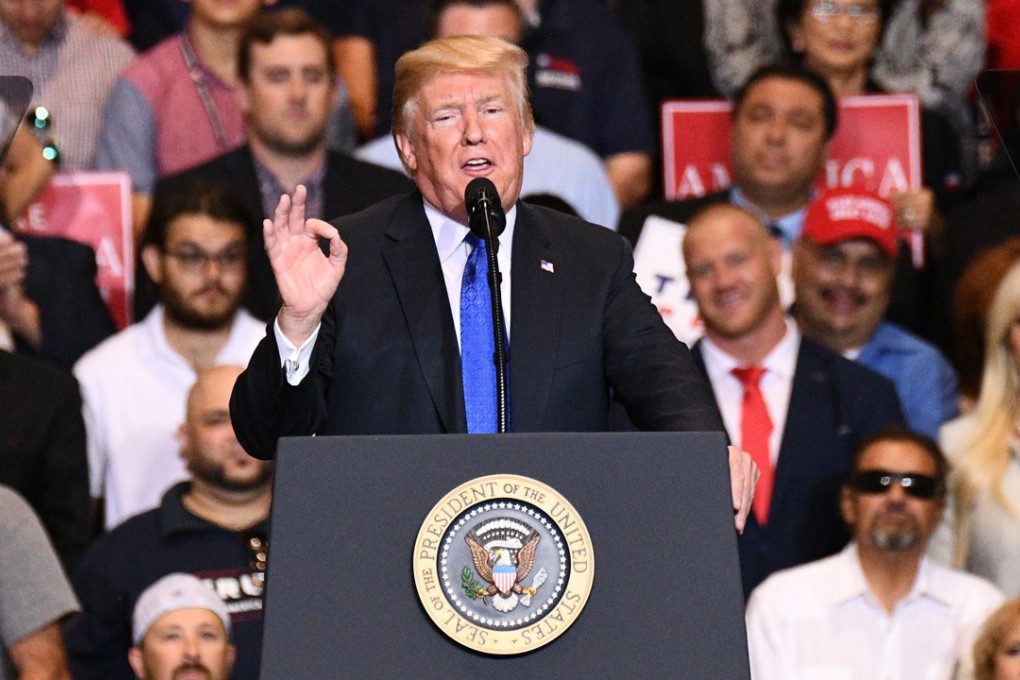Advertisement
How Donald Trump made being tough on China the new normal and why it’s here to stay
Kristian McGuire says the US president has his finger on the pulse of growing American dissatisfaction with their country’s trade relationship with China, a sentiment particularly strong among voters in key swing states
Reading Time:4 minutes
Why you can trust SCMP

Debate about the wisdom or foolishness of US President Donald Trump’s decision to embroil his country in a trade war with China has tended to obscure the fact that most Americans are dissatisfied with the broader US-China economic relationship, whether or not they support their president’s strategy for rectifying it.
This negative public sentiment, combined with other important factors, indicates that tougher US economic policies towards China could be the new normal, even if Trump loses his tit-for-tat tariff battle or accepts a modest sop from Beijing.
Poll after poll shows that the US populace is divided, largely along partisan lines, on the issue of imposing tariffs on Chinese imports. At the same time, a clear majority of Americans see the US-China economic relationship as rigged in China’s favour and detrimental to US interests. A Gallup survey, conducted in late June, found that 62 per cent of Americans believe that China’s trade policies towards the United States are unfair.
Advertisement
And while few welcome a trade war with the world’s second-largest economy, there is a general agreement among US voters that Washington ought to push back harder against China’s technology transfer requirements, intellectual property theft and other unjust policies and practices.
Watch: The origins and impact of the US-China trade war
Earlier this year, as the Trump administration prepared to levy tariffs on Chinese products, multiple nationwide polls by Harvard University’s Centre for American Studies and The Harris Poll revealed that two-thirds of American registered voters support punitive measures against Chinese tech firms as a response to China’s injurious investment policies, which force US companies to trade their intellectual property and technology secrets for access to the Chinese consumer market.
Advertisement
Select Voice
Select Speed
1.00x